Best Sprays for Japanese Beetles on Plants That Actually Work (2025 Guide)

Japanese beetles can quickly devastate your garden. Their appetite for leaves and flowers is relentless, and finding the right spray can save your plants and your peace of mind. To help you, here are the 6 best sprays for Japanese beetles on plants that have been tested. These products are highly rated, effective, and safe for your garden.
1. Bonide Neem Oil Spray
Rating: ★★★★★
Bonide Neem Oil Spray is a favorite among gardeners for natural pest control. It uses neem oil, which disrupts the feeding and reproduction of Japanese beetles without harsh chemicals.
✅ Easy to apply with a spray bottle
✅ Organic and safe for beneficial insects
✅ Works on a variety of garden pests
Results: After using Bonide Neem Oil for a week, I noticed fewer beetles and healthier leaves. It’s gentle but powerful.
Pros:
-
Organic and eco-friendly
-
Effective on multiple pests
-
Safe for veggies and flowers
Cons:
-
Needs regular reapplication every 7-10 days
-
Slight odor that some may dislike
Protect your garden naturally—Check Price & Buy Bonide Neem Oil on Amazon
2. Spectracide Triazicide Insect Killer
Rating: ★★★★☆
Spectracide Triazicide is a fast-acting, broad-spectrum insecticide that kills Japanese beetles on contact and through ingestion.
✅ Kills beetles quickly within hours
✅ Can be used on flowers, shrubs, and trees
✅ Long-lasting protection up to 4 weeks
Results: I saw dead beetles within hours of spraying. It controls heavy infestations effectively.
Pros:
-
Fast-acting formula
-
Covers large garden areas
-
Easy to apply
Cons:
-
Contains chemicals, so avoid use on edible plants without caution
-
Not suitable for organic gardens
Need a quick beetle kill? Buy Spectracide Triazicide on Amazon Today
3. Garden Safe Insecticidal Soap Spray
Rating: ★★★★☆
This insecticidal soap spray is ideal for gardeners seeking a gentle yet effective treatment. It works by suffocating soft-bodied insects, including Japanese beetles.
✅ Safe for organic gardening and pets
✅ No harsh chemicals or toxins
✅ Easy to apply directly to affected plants
Results: It helped reduce beetle numbers steadily with consistent use over two weeks.
Pros:
-
Organic and safe for beneficial insects
-
Can be used around pets and kids
-
Biodegradable formula
Cons:
-
May require multiple applications
-
Less effective on heavy infestations
For safe, chemical-free control—Order Garden Safe Insecticidal Soap on Amazon
4. Safer Brand 5118 Caterpillar Killer II
Rating: ★★★★☆
Although designed for caterpillars, this product is also effective against Japanese beetles. It contains Bacillus thuringiensis (Bt), a natural bacteria toxic to beetle larvae.
✅ Organic and safe for most beneficial insects
✅ Controls larvae and adult beetles
✅ Suitable for vegetables and flowers
Results: I saw fewer beetles and damage after two weeks, especially on my roses.
Pros:
-
Safe for organic gardens
-
Targets beetle larvae
-
Low toxicity
Cons:
-
Slow to see results
-
Needs careful application timing
Target beetles from the start—Get Safer Brand 5118 on Amazon Now
5. Monterey Garden Insect Spray
Rating: ★★★★☆
Monterey Garden Insect Spray combines insecticidal soap with pyrethrins, natural extracts that quickly knock down beetles.
✅ Fast knockdown effect
✅ Safe for most plants and pets when used as directed
✅ Controls multiple insect pests
Results: The spray reduced beetle activity significantly after just one application.
Pros:
-
Works fast
-
Broad-spectrum control
-
Pet-safe formula
Cons:
-
Needs multiple treatments for full control
-
Pyrethrins may harm beneficial insects if overused
Act fast against beetles—Purchase Monterey Garden Spray on Amazon
6. EcoSmart Organic Insect Killer
Rating: ★★★★☆
EcoSmart is a popular organic insect killer that uses essential oils like rosemary and peppermint to repel and kill Japanese beetles.
✅ 100% organic and safe for kids and pets
✅ Pleasant scent compared to chemical sprays
✅ Effective on a variety of garden pests
Results: After three applications, my plants were noticeably healthier, with fewer beetles.
Pros:
-
Organic and natural
-
Pleasant fragrance
-
Good for organic vegetable gardens
Cons:
-
Needs frequent reapplication
-
May not control severe infestations alone
Go organic—Buy EcoSmart Organic Insect Killer on Amazon
Frequently Asked Questions (FAQs)
1. Are these sprays safe for edible plants?
Most organic sprays like Bonide Neem Oil and EcoSmart are safe for fruits and vegetables. Always read the label before applying.
2. How often should I spray for Japanese beetles?
Reapplication every 7-10 days is typical for organic products. Chemical sprays may last longer but use with care.
3. Can I use these sprays around pets and children?
Organic and insecticidal soap sprays are generally safe. Avoid chemical sprays if pets or kids will be in the area soon after application.
4. When is the best time to apply beetle sprays?
Early morning or late evening is best to avoid harming pollinators and maximize effectiveness.
5. Will these sprays kill beneficial insects?
Insecticidal soaps and neem oil are safer for beneficial insects, while chemical sprays can harm them.
6. Can I combine these sprays with other pest control methods?
Yes, combining sprays with traps or physical barriers improves overall beetle control.
Conclusion
Japanese beetles don’t stand a chance when you use the right spray. Whether you prefer organic options like Bonide Neem Oil or quick-acting formulas like Spectracide Triazicide, these top 6 sprays offer reliable protection. Remember, consistency is key. Apply regularly, follow safety instructions, and combine treatments if needed for best results.
Protect your garden and enjoy healthy plants all season long!





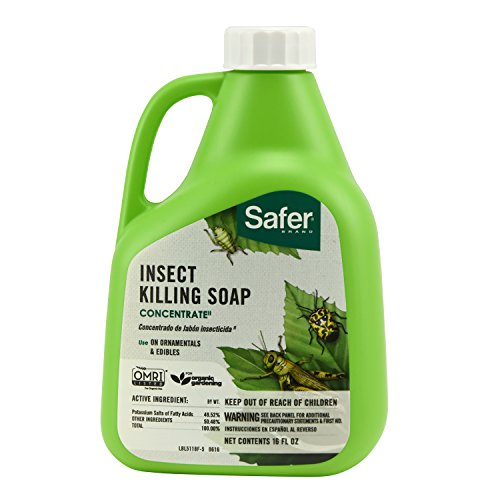



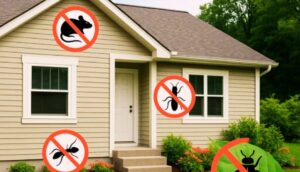

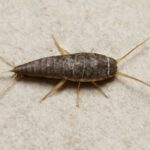
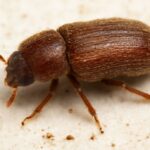
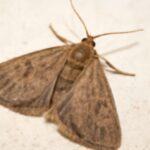


This article truly hits home for our family. My husband, being a farmer, often grapples with the challenges posed by Japanese beetles. Their presence can be devastating, especially during peak seasons when crops are most vulnerable.
We’ve experimented with various methods, from manual removal to natural deterrents, but it’s always a balancing act between effectiveness and environmental impact. Your insights into different sprays and their applications are incredibly valuable.
I’m curious, though—have you found any particular spray to be more effective during specific stages of the beetle’s life cycle? Also, for larger farming operations, are there scalable solutions that maintain eco-friendliness while ensuring crop protection?
Thank you for shedding light on this topic. It’s comforting to know we’re not alone in this battle and that there are resources available to guide us.
1. Are certain sprays more effective during specific beetle life stages?
Definitely! The timing of your spray can make a big difference. Sprays tend to work best when beetles are still in the larval stage—that’s when they’re softer and more vulnerable. Something like neem oil is super helpful at this stage because it messes with their growth and can stop them from ever reaching adulthood.
Once beetles are fully grown, they’re tougher to control. Adult beetles have hard shells and are more mobile, so contact sprays like pyrethrin can still work, but they usually need to be applied more often to stay effective.
2. Are there eco-friendly solutions that work for bigger farms?
Yes, absolutely! Large-scale operations have more options than ever when it comes to staying eco-conscious while keeping crops safe:
Integrated Pest Management (IPM) is a smart approach that blends different methods—think crop rotation, natural predators, pheromone traps, and spot treatments—to minimize pesticide use and maximize results.
Biological controls are also great. For example, introducing beneficial insects or using natural fungi like Beauveria bassiana can help keep beetle populations in check without harming the environment.
Organic-friendly sprays like spinosad or kaolin clay are safe to use on a large scale and can be applied with commercial equipment.
Trap crops are another clever tactic—basically, you plant something beetles love a little away from your main crop, and they flock there instead, making them easier to manage.
With the right mix of strategies, it’s totally possible to scale up and still stay green!